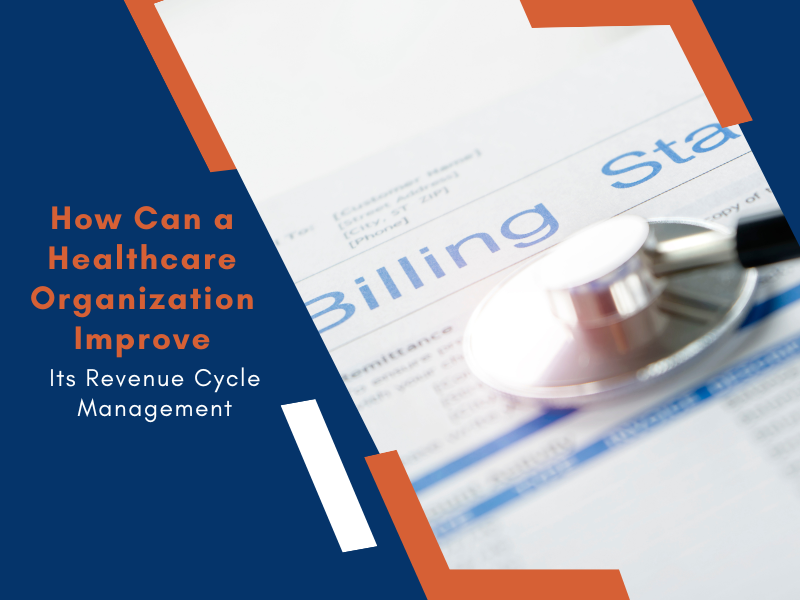Healthcare credentialing plays a critical role in maintaining high standards of patient care and ensuring that medical professionals meet rigorous standards before practicing. National credentialing organizations in healthcare are at the forefront of setting these standards, safeguarding patient well-being, and upholding the integrity of healthcare services. But what exactly do these organizations do, and why is their work essential? In this blog, we’ll explore the functions of national credentialing organizations, the benefits of credentialing, and the overall impact on healthcare systems.
What is Healthcare Credentialing?
Healthcare credentialing is a process that verifies and validates the qualifications, experience, and competencies of healthcare professionals. This includes ensuring that doctors, nurses, and other medical staff have the appropriate education, training, and licenses to perform their duties effectively and safely. Credentialing is typically a multi-step process involving verification of education, board certifications, licenses, and work history. It’s a vital part of hiring and maintaining a qualified healthcare workforce, ensuring professionals meet high standards before and during their practice.
National Credentialing Organizations: Who Are They?
National credentialing organizations are agencies that set these standards and guidelines for credentialing across the United States. They help verify and accredit healthcare providers and facilities by establishing benchmarks that promote quality care and patient safety. Examples of national credentialing organizations include:
The National Committee for Quality Assurance (NCQA) – Focuses on improving healthcare quality by accrediting healthcare organizations and evaluating healthcare providers.
The Joint Commission (TJC) – Provides accreditation to healthcare organizations and facilities, setting standards for patient safety and quality of care.
The Accreditation Association for Ambulatory Health Care (AAAHC) – Specializes in accrediting outpatient and ambulatory care facilities.
American Board of Medical Specialties (ABMS) – Offers board certification and sets standards for the certification of physicians in various specialties.
Council for Affordable Quality Healthcare (CAQH) – Aims to streamline the credentialing process through digital platforms, helping providers and organizations manage and verify credentials efficiently.
Each of these organizations has a unique focus but shares a common mission: to uphold high standards for healthcare professionals and organizations, thereby improving the safety, reliability, and accessibility of healthcare services across the country.
The Importance of Credentialing in Healthcare
Credentialing is vital to ensuring that healthcare providers are not only qualified but also maintain up-to-date knowledge and skills throughout their careers. Here are some of the key benefits credentialing brings to the healthcare sector:
Patient Safety and Quality of Care
- Credentialing ensures that healthcare providers possess the skills and training required to provide safe, effective care. By verifying each provider’s credentials, healthcare facilities reduce the risk of medical errors, protect patient welfare, and maintain trust within the community.
- Credentialing ensures that healthcare providers possess the skills and training required to provide safe, effective care. By verifying each provider’s credentials, healthcare facilities reduce the risk of medical errors, protect patient welfare, and maintain trust within the community.
Compliance with Regulations
- National credentialing organizations help facilities comply with federal, state, and local healthcare regulations. This compliance is crucial for maintaining licenses, receiving reimbursement from insurance providers, and avoiding legal complications.
- National credentialing organizations help facilities comply with federal, state, and local healthcare regulations. This compliance is crucial for maintaining licenses, receiving reimbursement from insurance providers, and avoiding legal complications.
Professional Accountability and Development
- Credentialing encourages continuous professional development among healthcare providers. Certifications need to be renewed periodically, often requiring providers to complete ongoing education. This fosters a culture of accountability and growth, keeping healthcare practices in line with the latest standards and best practices.
- Credentialing encourages continuous professional development among healthcare providers. Certifications need to be renewed periodically, often requiring providers to complete ongoing education. This fosters a culture of accountability and growth, keeping healthcare practices in line with the latest standards and best practices.
Enhanced Efficiency in Hiring and Verification Processes
- Credentialing simplifies and standardizes hiring processes in healthcare settings. With credentialing in place, hiring managers can quickly verify qualifications, ensuring that only qualified professionals are employed, reducing administrative burdens, and enhancing operational efficiency.
How Credentialing Organizations Impact Healthcare Providers and Facilities
Credentialing organizations offer more than just verification. They provide healthcare providers and organizations with resources, guidelines, and frameworks for maintaining quality standards. Through regular assessments, audits, and updates on industry standards, these organizations ensure that healthcare facilities are constantly improving their operations and quality of care. Furthermore, credentialing bodies often provide tools and technology, such as databases and online portals, to streamline the credentialing process, allowing providers to maintain compliance more efficiently.
For instance, CAQH’s digital database has simplified the credentialing process, making it easier for healthcare providers to manage their credentials and for facilities to verify them. This type of innovation has not only made credentialing more accessible but also more accurate and faster, ultimately contributing to better patient outcomes.
Challenges Faced by Credentialing Organizations
Despite their crucial role, credentialing organizations face several challenges. The rapidly evolving nature of healthcare, technological advancements, and changes in regulatory requirements mean that credentialing standards must continually adapt. Additionally, the need for a balance between thorough verification and efficient credentialing processes can be difficult to achieve, especially given the increasing demands in healthcare staffing and rising patient needs.
Credentialing organizations must also address data security and privacy concerns, particularly as credentialing becomes more digital. Protecting sensitive information while ensuring accuracy and accessibility is a top priority and a significant challenge in the digital age.
Conclusion
National credentialing organizations are essential pillars of the healthcare system. By setting and maintaining high standards for healthcare providers and facilities, these organizations protect patients, enhance healthcare quality, and promote professional growth. Credentialing is more than a bureaucratic process; it’s a commitment to maintaining trust and accountability in healthcare. As healthcare evolves, credentialing organizations must continue to adapt, ensuring that standards keep pace with advancements while upholding their core mission of ensuring safe, reliable, and effective healthcare.





